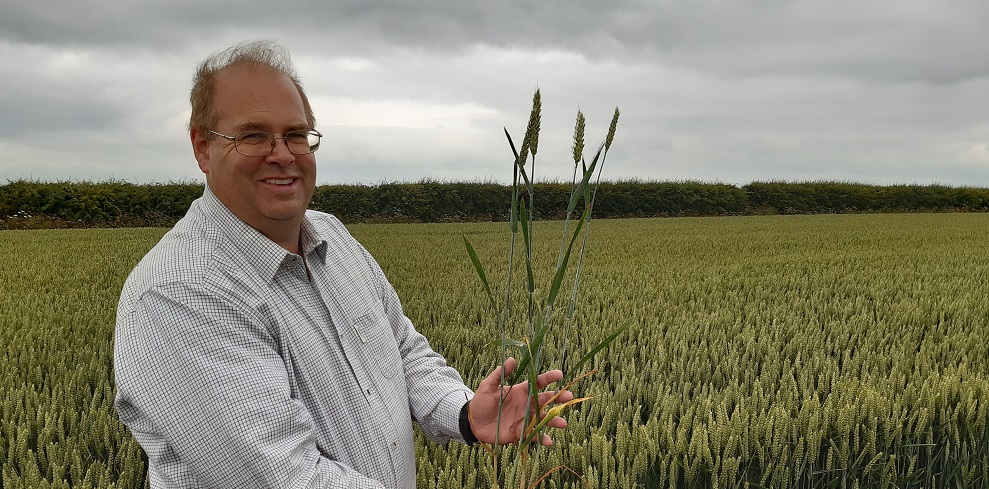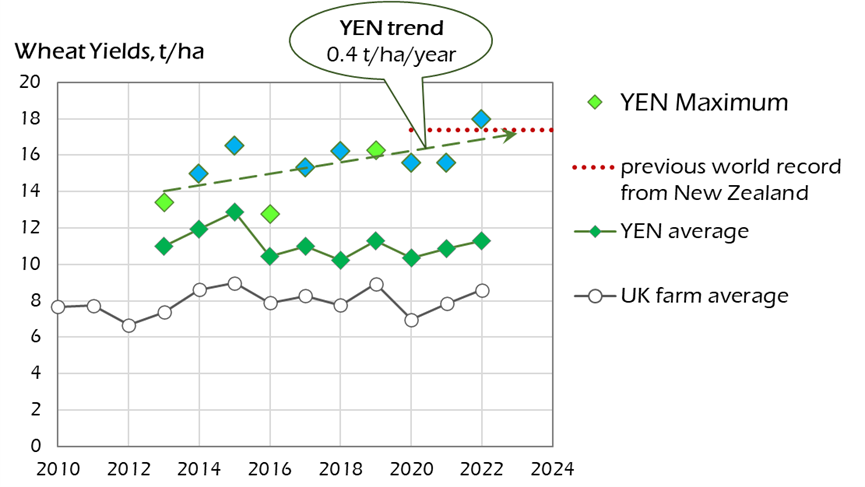
Tim Lamyman has grown high yielding crops for many years, and throughout, he has been a member of the Yield Enhancement Network – or YEN – which celebrated its 10th birthday last week. The YEN provides Tim – and many other farmers in the UK, Europe and now in North America – with detailed and bespoke intelligence about each of their crops, including crop structure and nutrition, so Tim and all YEN members can learn how to do better from year to year.

In 2022 Tim achieved not only the Guinness World Record for wheat[1] but also the Guinness World Record for barley at 16.2 tonnes per hectare[2], and his oilseed rape crop would also have broken records if an authority existed – 9.0 t/ha, after accounting for oil its content.
The YEN has come to understand that Tim’s achievements over the past decade arise from a combination of his soils, his farm’s climate, and most importantly, the intensity of his thinking and management. This doesn’t mean huge expense on seeds, fertilisers and sprays; it means intensive appreciation of and attention to his crops’ needs, and frequent treatments so that his crops experience a minimum of set-backs. Tim has described how he grew each of his crops below:
Tim’s crops belie the common suspicion that large yields require large inputs. Tim knows his main inputs are light energy and water, which come free if his crops can capture them. Whilst YEN doesn’t study economics, Tim’s reported inputs in the YEN’s database indicate that his world record wheat must have achieved a financial margin 60% greater than the average YEN crop (which yields 11 t/ha), and double the margin of the average UK wheat crop (which yields 8 t/ha). Furthermore the Nitrogen Use Efficiency of his crop (at 57 kg grain produced per kg N applied) was better by 8% than the average YEN crop and 35% better than the average UK wheat crop.
To sum up, Tim’s dedication, and his engagement with the YEN, have enabled all YEN members and sponsors to truly appreciate this world-beating achievement. It is not just a biological marvel, but also an exemplar for successful high-performance farming worldwide. Such high performance crops produce more food from the same amount of land (dubbed ‘land-sparing’), they make more profit, and they use scarce or polluting resources more efficiently. It remains to be seen, but all the evidence indicates that they also fix more carbon into the soil and leave that soil better able to absorb over-winter rainfall and so reduce flooding.
YEN data show that wheat yields of 14 t/ha are possible almost anywhere in NW Europe, and its mission through the next ten years will be to help as many farms as wish it, to achieve as close to their potential yields as Tim does.
Contacts:
Dhaval Patel, YEN manager: Dhaval.patel@adas.co.uk
Roger Sylvester-Bradley, Head of Crop Performance for ADAS & YEN Director: Roger.sylvester-bradley@adas.co.uk
Keep up with all things YEN on their Twitter or Website
[1] = 267 bushels per acre
[2] = 241 bushels per acre




























